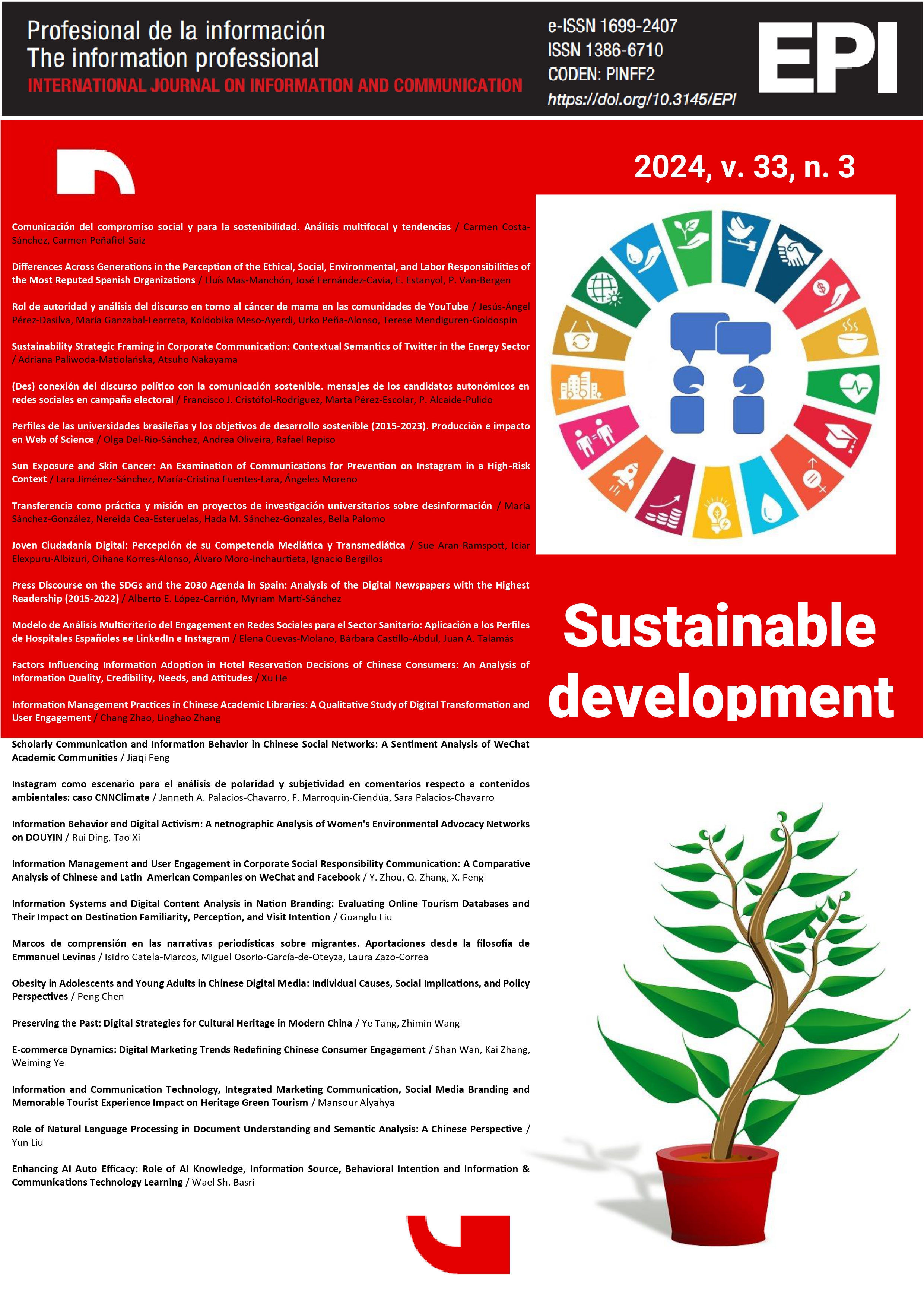Sustainability Strategic Framing in Corporate Communication: Contextual Semantics of Twitter in the Energy Sector
DOI:
https://doi.org/10.3145/epi.2024.0304Keywords:
Sustainable Communication, Corporate Communication, Sustainability, Energy Sector, Social MediaAbstract
Sustainability has become the prevailing paradigm, a model of conduct, and a central theme in social and media
discourses within the past decade. However, it is still a marginal development concept in the interdisciplinary
research field dealing with sustainability communication, especially with meaning-making processes in relevant
communicative, for example, in corporate and industry contexts. This paper focuses on how the idea of
sustainability is framed, anchored, and disseminated in energy companies' communication via social media
channels and how the linguistic methods used by energy corporations concerning sustainability co -create their
symbolic value. Specifically, this study has aimed to understand how the sustainability topic was discussed in the
Twitter sphere of the most prominent energy companies in 2020. This study makes a three -fold contribution to
sustainable research and practice. First, the study identifies the framing structure of sustainability content in
social media communication in the energy sector. Secondly, the study identifies social media data as a viable
source of sustainability conceptualization and its understanding through communication. Finally, this study
illustrates how text mining and natural language processing (NLP) can be used as a research method for managing
big text data and a tool for discovering latent communication structures. Sustainability is present and visible in
the communication of the energy industry identified by (1) the semantic construction of phrases in communication
that show a future, green, and clean orientation, but it is also strongly declarative, referring to what will be and
can be done, and with positive emotions related to the communicated messages; and (2) decoupling from climate
change and thus avoiding the industry's responsibility for the impact of global warming but promising clean,
sustainable energy transformation and to avoid negative emotional connotation. However, one gets the
impression that it takes on the character of a rhetorical art form related to the concept of decorum. In this view,
the idea of sustainability is interpreted and shaped through the needs of the industry and as a rhetorical tool in
building a positive narrative about companies and is used to gain legitimacy.
Downloads
Downloads
Published
How to Cite
Issue
Section
License
Copyright (c) 2024 Profesional de la información

This work is licensed under a Creative Commons Attribution 4.0 International License.
Dissemination conditions of the articles once they are published
Authors can freely disseminate their articles on websites, social networks and repositories
However, the following conditions must be respected:
- Only the editorial version should be made public. Please do not publish preprints, postprints or proofs.
- Along with this copy, a specific mention of the publication in which the text has appeared must be included, also adding a clickable link to the URL: http://www.profesionaldelainformacion.com
- Only the final editorial version should be made public. Please do not publish preprints, postprints or proofs.
- Along with that copy, a specific mention of the publication in which the text has appeared must be included, also adding a clickable link to the URL: http://revista.profesionaldelainformacion.com
Profesional de la información journal offers the articles in open access with a Creative Commons BY license.




